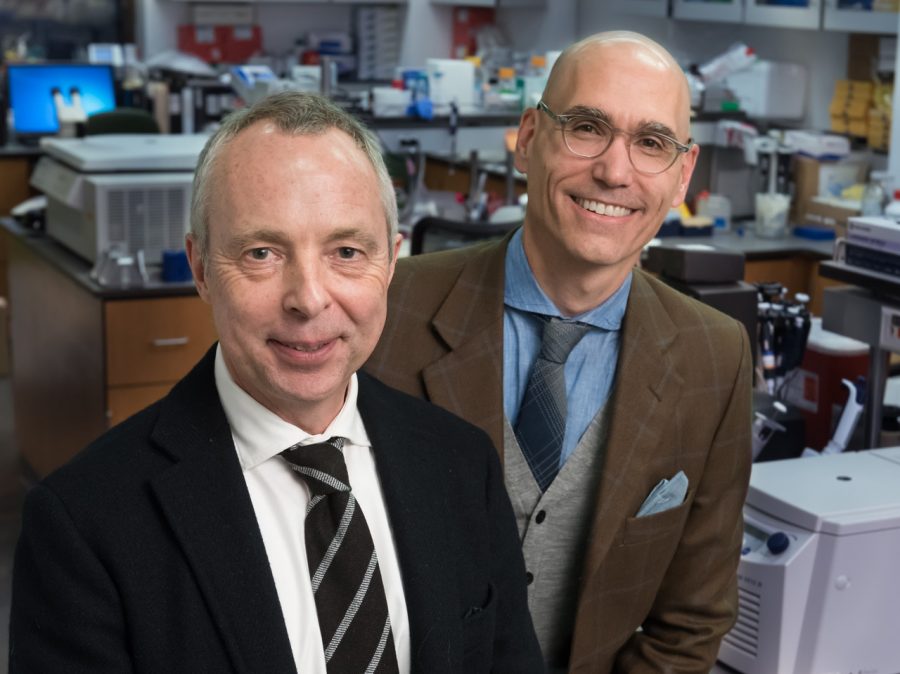NYU and Columbia Professors Team Up to Battle Oral Cancer
Dr. Schmidt, professor of Oral and Maxillofacial Surgery at NYU (right), and Dr. Bunnett, professor in the Department of Surgery and Pharmacology at Columbia University (left).
January 30, 2018
Dr. Brian Schmidt, director of the Bluestone Center for Clinical Research at NYU’s College of Dentistry, and Dr. Nigel Bunnett of Columbia University’s Department of Surgery and Pharmacology, have been awarded a $3.7 million, five-year grant to better understand the root cause of oral cancer pain. This grant was given by the National Institute of Dental and Craniofacial Research to hopefully develop new non opioid treatments for oral cancer patients, according to NYU’s Health and Medicine website.
Schmidt and Bunnett both have extensive experience researching oral cancer; the pair collaborated once before as faculty at the University of California San Francisco to study the role of proteases — enzymes that break down proteins — in oral cancer. Currently, Schmidt is a clinical scientist of neuronal mechanisms for cancer pain, and Dr. Bunnett continues to conduct research into specific proteins that control pain and inflammation in the body.
Bunnett’s past research involving the Protease activated receptor 2 (PAR2) enzyme — a signaling receptor on the surface of cells — will act as the springboard for the two professors’ future research. The two hypothesize that the excessive proteases present in oral cancer react with the PAR2 enzyme in cancer cells, thus sending pain signals to the brain.
“We linked my previous discovery of the mechanisms by which proteases released by inflammatory cells can activate sensory nerves to cause pain to Dr. Schmidt’s work on cancer pain,” Dr. Bunnett said. “This helped us develop the novel hypothesis that proteases from oral cancers cause pain by cleaving a specific receptor on the surface off pain transmitting nerves — proteases activated receptor 2 or PAR2.”
Schmidt and Bunnett have found that there are high levels of proteases in oral cancers, prompting their hypothesis that PAR2 may be a reason oral cancer patients suffer from chronic pain. Because of this chronic pain, oral cancer patients are at high risk for opioid addiction during and after treatment. Opioids are a synthetic narcotic that can be prescribed to patients for pain relief; because of their euphoric effects, overuse can lead to addiction and even death. According to research conducted by BlueCross BlueShield, addiction to opioids have risen nearly 500% in the past seven years.
Moving forward, the professors want to develop new treatments for cancer pain that stop PAR2 and proteases to counter oral pain.
“These would be non opioid treatments,” Dr. Bunnett said. “Which are desperately needed to treat chronic pain associated with many diseases.”
Dr. Schmidt plans to utilize pain severity data gathered from his patients in conjunction with research into the cellular origins of the proteases from patients’ tissues, according to a campus news source. Along with determining the source of pain, the two professors aim to find treatment solutions that can be applied to a wide range of pain experienced by cancer patients.
“We need to evaluate new therapies and must determine whether those mechanisms are applicable to other cancer pains,” said Bennett.
Email Chia Chen Lee at [email protected].
























































































































































